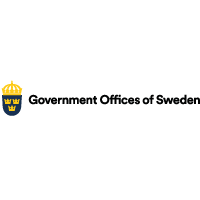
Ladies and gentlemen, dear colleagues,
I am happy to be part of this Ministerial Forum on Digital Justice.
In times of innovation and globalisation, it is our responsibility as Justice ministers to ensure that the judiciary develops as society does. I would like to thank the Commission for organising this event. This Forum gives us an opportunity to exchange experiences and to shape a common vision for the future.
For the Swedish Government, sustainability is key to successful development. The green and digital transitions are interconnected and form the basis for Europe’s economic recovery after the Corona crisis.
Individuals, companies, and organisations use digital communication in their everyday lives. They expect communication with courts and prosecutors to be as smooth as communication with for example travel agencies or insurance companies.
What will the consequences be, if business transitions in the EU are considered more cumbersome, and therefore less profitable, than in other parts of the world?
Or, turning to criminal law, how do we uphold the trust and credibility of European justice, if criminals have better access to digital communication than prosecutors do? There is a clear need for interoperability for making justice faster.
As the 2021 EU Justice Scoreboard shows, the effectiveness of EU justice systems has once again improved in a large majority of Member States. At the same time, upholding the rule of law requires constant improvement, because there is always a risk of backsliding. Trust is fragile.
Digitalisation can improve transparency and effectiveness. In that way it can strengthen the trust in our national legal systems. And reversely, digitalisation implemented wrongly will jeopardize its legitimacy. That is why, information- and cybersecurity aspects require our full attention and need to be addressed early on and as an integrated part in all initiatives. It is also important that the use of digital technologies does not diminish procedural safeguards for people not benefiting from such technologies.
Ladies and gentlemen let me give you an example from digitalisation in the Swedish courts. Last year, despite the corona pandemic, the Swedish courts decided on more cases than ever before, 496 000 cases. In comparison to the year before, this was an increase of court decisions by seven percent, due in part to an increased use of video conferencing. Parties and legal representatives could participate in hearings from their home or from the office. Another recent digital improvement is that written submissions may be presented in electronic form to a greater extent than before. More efficiency gains will follow.
Work on improving information management in the judicial system is a long-term undertaking, involving not just the development of IT solutions but also changes in working methods and culture. Together, we must lead the way for modern and sustainable European judiciaries.
Thank you!